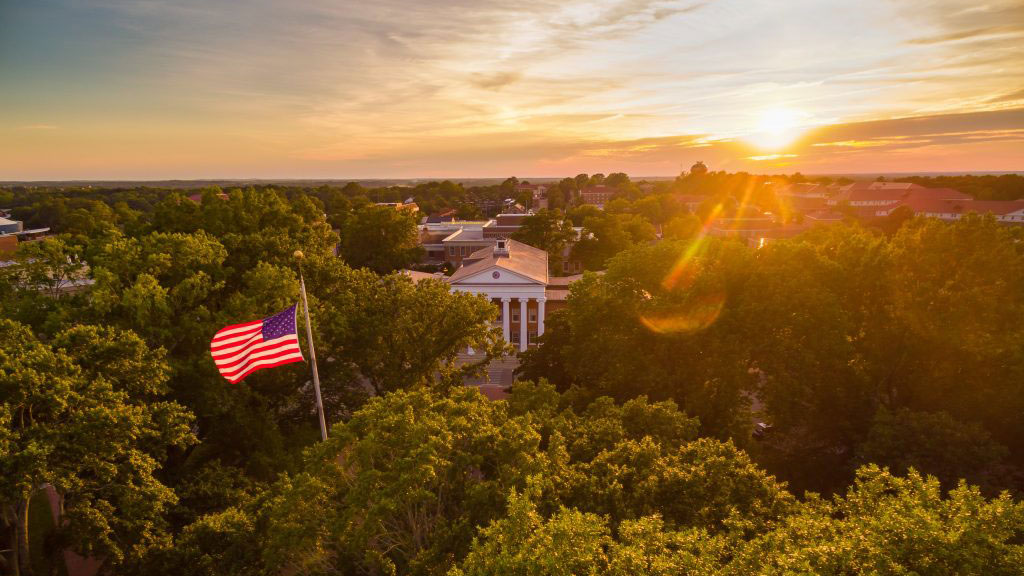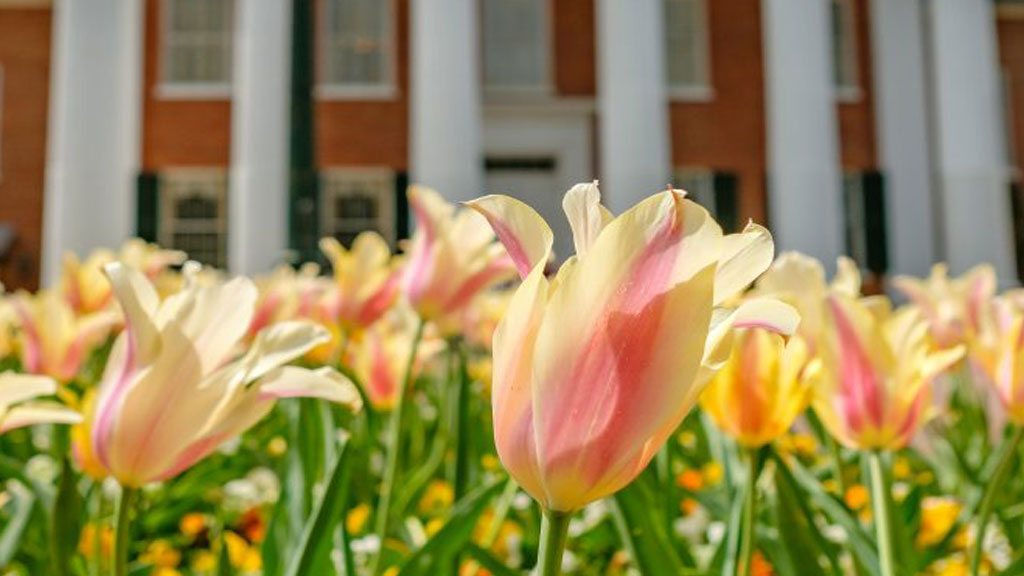Born on campus, William Michael Cox is set to graduate from Ole Miss with a Doctor of Education degree
Among the many students graduating from the University of Mississippi in 2020, William Michael Cox is probably the only one who is actually from Ole Miss.
“My father attended UM following the Second World War,” Cox said. “He and my mother lived in housing that had been constructed specifically for married veterans.”
Vets Village, as it was called, was near the present Robert C. Khayat School of Law. The facility consisted of Army barracks that had been relocated from Camp McCain in Grenada to the UM campus.
“I have a picture of me as a 6-month-old sitting with my mother in the Grove,” he said. “So I am, in fact, originally from Ole Miss.”

Cox has been a full-time graduate student since spring 2009. He holds an undergraduate degree in music from Mississippi State, and the Ed.D. will be his third postgraduate degree from the University of Mississippi.
Like his father before him, Cox served his country through the military. For 28 years, he was in the U.S. Army, the bulk of his career spent in U.S. Special Operations Forces (Green Berets).
“When I retired from the military, I submitted resumes to a dozen or so organizations of interest,” Cox said. “In the interim, my wife suggested that I might want to sign up to substitute teach. After my first day as a substitute, I cancelled all my outstanding job applications and told my wife that teaching was what I was supposed to do next.”
Cox spent the next 18 months satisfying the requirements for admission to a graduate program in education. After two interviews, six postgraduate hours of coursework, 1,100 classroom hours as a substitute teacher and a number of qualifying tests, he was granted a class A teaching license and full status as a graduate student at UM.
Last year, Cox received an invitation and joined the Oxford Languages board of the Oxford English Dictionary Researchers Advisory Group (University of Oxford, U.K.). His membership in professional organizations includes the National Association of Scholars, the American Educational Research Association and Phi Delta Kappa.

“When I finished my master’s degree,” Cox said, “I applied for a position in the Grenada School District, but there were no positions open at the time. Rather than wait or go elsewhere, I decided to continue with the next level degree. I was accepted into an Ed.S. program, and halfway through, I was offered a position as an adjunct instructor in developmental studies. A year later, I found myself interviewing for a doctoral program.”
Cox spent his seven years of doctoral study developing an integrated theory of natural language called differential semantics. The theory seeks to account for the larger patterns of semantic complexity in natural language, particularly that of the academic and literary registers.
The theory, which ultimately became his dissertation, addresses semantics from two interrelated perspectives: semantic differentiae – the sources of semantic complexity – and semantic resonance – the correspondence of connotation between individuals. The purpose of the study is to provide a theoretical framework for the development of language arts curricula.
Cox credited several individuals with having influenced his life.
“My parents grew up during the Depression and went from there to the Second World War, so they had very pragmatic outlooks on life,” Cox said. “The wisdom handed down by my father, for instance, all centered around perseverance, making things happen, not looking for the easy way and not coming up with excuses if something didn’t work out.
“‘If something doesn’t work,’ he would say, ‘then you figure it out and you make it work anyway,’” Cox said. “He insisted that I think, and I am glad that what he had to say stuck in my head long enough for me to realize its value.”
Cox’s mother insisted that he read.
“She has always been an avid reader,” Cox said. “When she was in high school, she read every book in her high school library at least once. Her mother taught her to read before she started school, and she told me that that mother-daughter teaching tradition went back for three generations.”
Cox said others who inspired him include education professors Jerilou Moore (his Ed.D. adviser), James Payne (his Ed.S. adviser), Douglas Davis (his qualitative research instructor) and Rosemary Oliphant-Ingham, whose class on children’s literature was probably the most memorable of his 123 postgraduate hours.
Cox was named Outstanding Doctoral Student in Education, inducted into Phi Kappa Phi and Who’s Who, and was selected as a class marshal for the Graduate School. But for all of his educational achievements and degrees, Cox said that times of recognition always make him a little uncomfortable.
“I think about all the people who were here before me, and it is meaningful to me that I am here as a second-generation legacy,” he said. “I have a picture of my father receiving his diploma in the Grove, and I thought about that both times that I was doing the same.”
Cox also has a picture of himself and his mother in the Grove, taken at his Ed.S. graduation.

“I have it framed beside the 1950 picture of me as a baby,” Cox said. “Two mother-son Grove pictures, so many years apart. If I can arrange it, I want to take one final picture in doctoral regalia – the two of us standing in the Grove.”
By Edwin Smith/University Marketing & Communications



